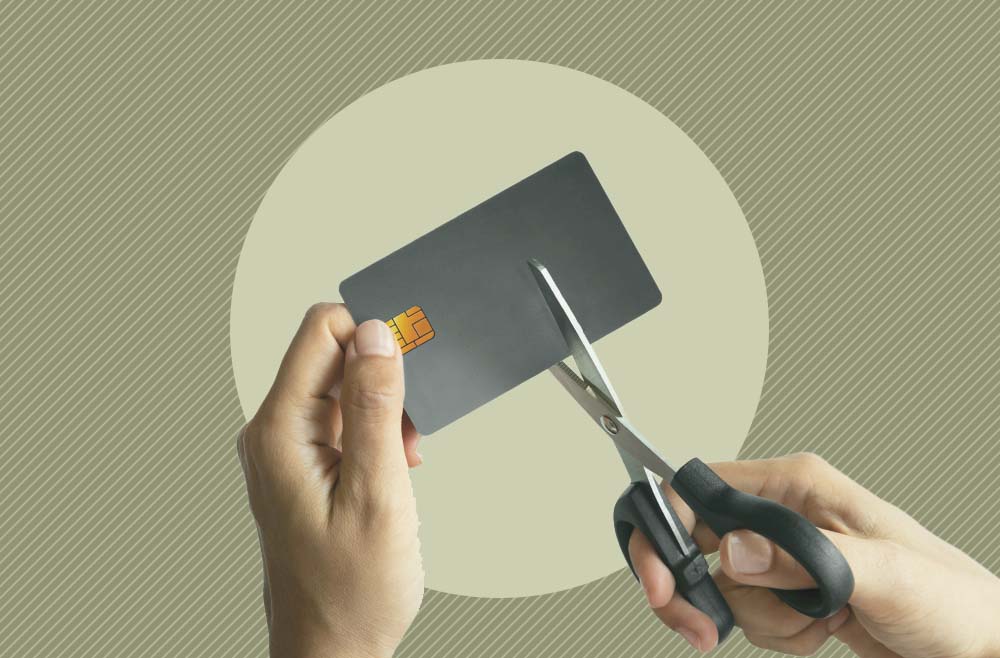
If your credit card is spending too much money or you have too much money, you may decide it’s time to close your account. This is a relatively simple process that can be done almost entirely over the phone. Since canceling a credit card can affect your credit rating, it’s important to approach this strategically and do everything you can to preserve your credit.
Unlike the television sitcoms that are taught, canceling a credit card involves more than just cutting the actual card in half and tossing it in the trash. And it can hurt your credit rating by affecting your credit history and credit usage. We’ll tell you how to cancel your credit card without harming your credit and how to make sure that revoking your credit card is the best option.
How to properly close your credit card
Return the balance.
To avoid accidental surcharges, you’ll have to return your entire balance before canceling your card. Some issuers will allow you to close your account for new payments as long as you continue to pay your balance. However, if you forget you have an account and stop paying your balance, your credit rating could be negatively affected.
Paying off existing compensation
Bonus points earned by using your card often disappear when you close your card. Depending on the card, you may be able to transfer points to other cards or cashback rewards programs. So use those reward points before you cancel your reservation.
Call customer service.
To cancel your card, you’ll need to call the issuer’s customer service department. This number can usually be found on the back of the card, on the bill, and online. When you connect with a customer service agent, notify the customer that you are closing your account.
When you call, put your credit card and account in front of you. This allows you to get all the information you need.
Your representative may ask you why you want to close your account. You can give the reasons you want, including why you are not using the card. You have the right to close your account for any reason.
If possible, write down your representative’s name or ID number and write it down in case you have a problem later.
Send a cancellation letter for additional protection.
Although not required, send a certificate of cancellation to the card issuer. When you talk to a customer service representative, ask them for the best address to send such a letter. And ask the issuer to make sure your account is fully paid.
Check your credit report
Before you close your card, check your credit report to see if there are any errors. You can order free reports every 12 months from three credit bureaus: Equifax, Experian and TransUnion. AnnualCreditReport.com .
If there is an error in your account history, such as a payment being incorrectly listed as past due or missing, or a payment being listed as an incorrect account, you can file a claim. The credit bureau has 30 days to review your dispute and respond.
After you close your account, we recommend that you review your credit again to see if there are any errors. Common errors that occur after you cancel a card include the account appearing to be open and active after you close the card, or that your credit report is missing the “Closed by Authorizer” mark. It should be made clear that the account was closed by the creditor.
Is it wise to cancel your credit card?
Canceling it may be a smart idea when a credit card costs too much money or damages your credit rating in other ways. However, canceling a credit card usually damages your credit, so closing the card can be done in a way that minimizes damage to your credit file. Weighing the pros and cons will help you make the best choice for your financial situation.



GIPHY App Key not set. Please check settings